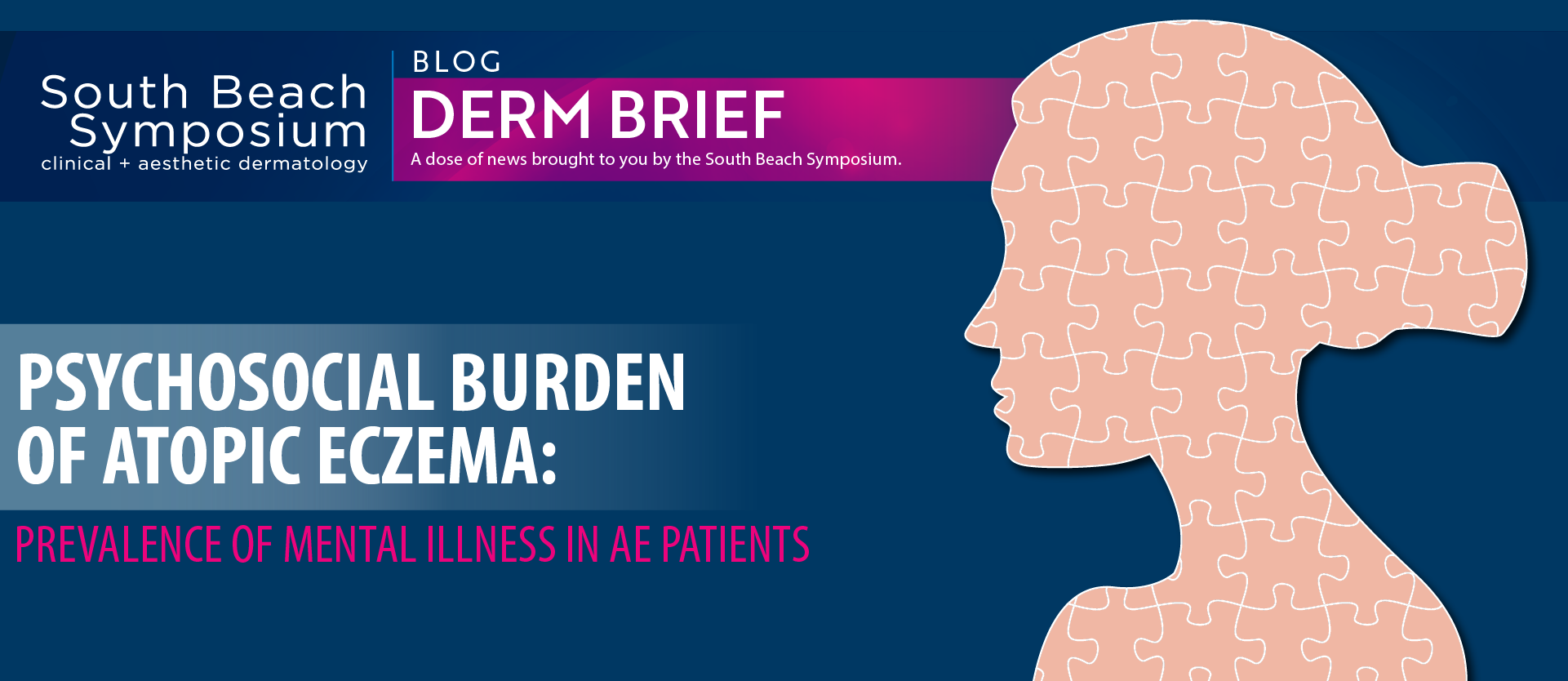Atopic dermatitis (AD), or eczema, is a cause of suffering for many U.S. adults, impacting not only their skin health but also productivity levels, mental health, and quality of life. Current data reveals the high prevalence and disease burden of atopic eczema, with an estimate of 16.5 million adult cases and 6.6 million of those meeting the moderate-to-severe disease criteria.
With 7.3% of U.S. adults living with atopic eczema, it is important to consider more than just the physical symptoms of the disease, which significantly affect patient quality of life. Over the past few years there has been a growing awareness of AE comorbidities, including increasingly studied psychosocial comorbid conditions. Mounting evidence reveals that atopic eczema can be a significant challenge on patients’ emotional wellbeing linked to several mental illnesses.
“The burden of atopic dermatitis is often under-appreciated, especially in adults,” Jonathan I. Silverberg, MD, PhD, MPH, of Northwestern University’s Feinberg School of Medicine, told Healio Psychiatry in an interview.
Emerging Research
The latest findings published in the Journal of the European Academy of Dermatology and Venereology reveal that patients with atopic eczema may have a higher prevalence of depression and anxiety compared with individuals with other chronic conditions.
Mental Health in Patients with Atopic Eczema
In a cross-sectional study led by Dr. Regina Treudler, a team of researchers aimed to determine the relationship between atopic eczema, depression, anxiety, quality of life, and social interactions. Researchers analyzed data from population-based LIFE-Health Adult Study from Germany; the study’s cohort was comprised of 9,104 adults (57% female with a median age of 54 years) of which 372 participants had a history of atopic eczema.
Participants completed several self-assessments, including standardized questionnaires for depression (the Centre for Epidemiologic Studies-Depression scale [CES-D]) and anxiety (Generalized Anxiety Disorder [GAD-7]). Social isolation metrics were assessed using the Lubben Social Network Scale (LSNS) and quality of life results were measured using the Short Form Health Survey-8. After adjusting for sociodemographic variables, the psychosocial outcomes of patients with atopic eczema were compared with those of patients with other chronic diseases – such as diabetes, cancer, and cardiovascular disease.
High Incidence of Depression, Anxiety Tied to AE
The research team found that participants with atopic eczema scored higher on both depressive scales and anxiety measures compared with the control group. Significantly more patients with atopic eczema had CES-D scores indicative of depression than control participants, at 9.3% and 6.3%, respectively. Participants with AE also had a higher incidence of anxiety (8.4%) compared with the control cohort (5.6%).
Scientists also found that the odds ratio for depression in the atopic eczema patient group was similar to that of patients with a history of cancer (OR 1.5 vs. 1.6). The odds ratio for anxiety in cases of AE was 1.5 – slightly higher than in diabetes mellitus and stroke at 1.4 and 1.2, respectively.
Furthermore, participants with atop eczema exhibited lower quality of life scores than their control counterparts for both physical and mental components of the assessment. However, there was no significant correlation between atopic eczema and social isolation when adjusted for age and other variables.
Older age, female sex, low-to-middle socioeconomic status, and a history of cancer were all factors associated with increased risk for anxiety. Alongside those factors, a self-reported history of stroke and diabetes mellitus increased the risk of depression.
The authors acknowledged the limitations of their study, which included a reliance on data from the cross-sectional group from Germany as well as a lack of disease severity measurement as a variable.
Nonetheless, their results implicate a greater need for clinicians to pay close attention to the wellbeing of patients with atopic eczema and be aware of potentially comorbid mental health conditions which could adversely affect their quality of life. Future clinical care for this population must include a greater emphasis on mental health evaluations and include holistic treatment solutions if symptoms of illness are indicated.
















